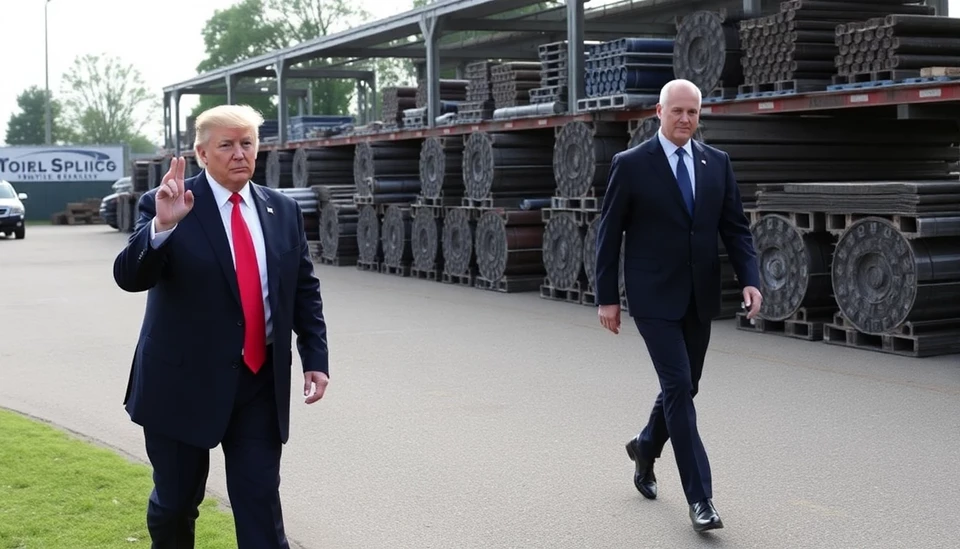
In a significant move anticipated to reshape the dynamics of international trade, former President Donald Trump is gearing up to announce the implementation of a 25% tariff on steel and aluminum imports. This announcement, set for Monday, February 12, 2025, promises to stir considerable debate and prompt reactions from both domestic industry stakeholders and international partners.
Sources close to Trump's inner circle indicate that the former president aims to reinvigorate American manufacturing by protecting domestic producers from foreign competition. Advocates of the tariffs highlight the ongoing struggles faced by the steel and aluminum sectors, which they argue have been severely undermined by excessive imports and unfair trading practices.
The planned tariffs represent a continuation of Trump’s “America First” trade policy, which was a hallmark of his administration. This initiative has the potential to garner both support and criticism; while supporters argue that tariffs will help preserve American jobs and enhance national security, detractors warn that such measures could ignite a trade war and lead to retaliatory tariffs from affected countries.
Federal data reveals that the U.S. steel and aluminum industries have recently experienced fluctuations due to lowered international demand and increased competition. Manufacturing unions and workers in these sectors are expected to cheer the announcement, viewing it as a necessary step towards job protection and economic stabilization.
However, the timing of the announcement raises questions regarding its broader implications on global trade relations. Analysts suggest that imposing tariffs could alienate key ally nations and result in heightened tensions within global markets. Countries like Canada and Mexico, which are among the top exporters of steel and aluminum to the U.S., have previously voiced opposition to Trump's trade policies and may respond with their own set of countermeasures.
As the announcement draws closer, industry watchers and policymakers are keeping a close eye on potential ripple effects throughout the economy, particularly in sectors reliant on steel and aluminum products. Manufacturers fear increased costs could lead to higher prices for consumers, which may exacerbate inflationary pressures already felt across the economy.
The exact details of the proposed tariffs, as well as potential exemptions for certain allied countries, remain unclear. It is expected that the Trump camp will lay out a comprehensive strategy ahead of the announcement, addressing both the short-term impacts and long-term goals of revitalizing American manufacturing.
As the political landscape continues to fluctuate, this announcement comes at a critical juncture, with much at stake for the future of U.S. trade policy, economic recovery, and international relations. The anticipation surrounding this unveiling reflects the contentious and evolving nature of trade discussions in a world increasingly characterized by economic nationalism.
Stay tuned for updates as the situation develops and reactions from various stakeholders emerge following the announcement.
#TrumpTariffs #SteelIndustry #AluminumTariffs #TradePolicy #AmericaFirst #Manufacturing #EconomicImpact #GlobalTradeRelations
Author: Rachel Greene




